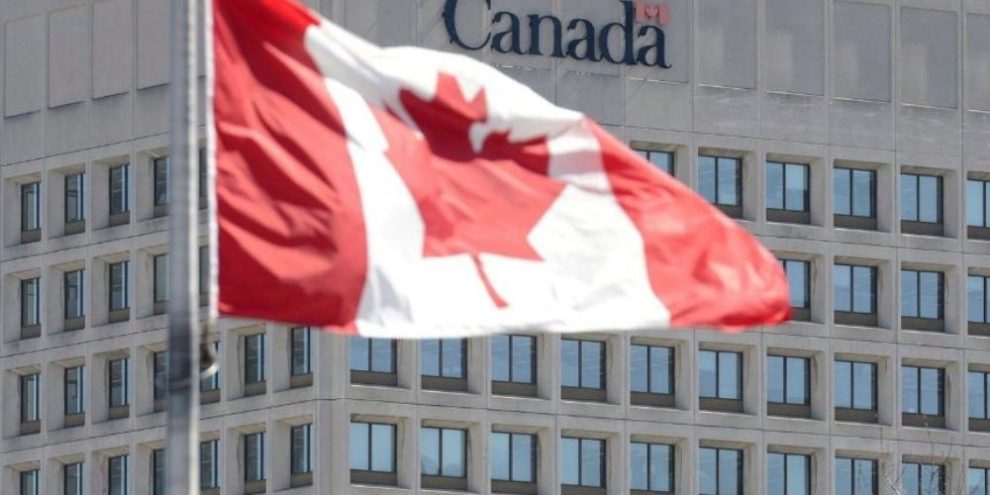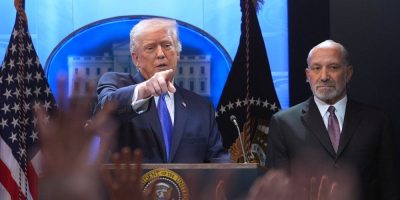
By Lee Berthiaume in Ottawa
Ottawa's plan to transfer cases of alleged sexual crimes involving military personnel outside the Canadian Armed Forces has hit resistance, with military police forced to investigate dozens of cases over the past year after they were rejected by civilian authorities.
Defence Minister Anita Anand presented a report to Parliament on Tuesday on the military's efforts to address sexual misconduct in the ranks, but during a technical briefing on the report, officials revealed the difficulties with implementing a key recommended reform.
The report specifically offered an update on the implementation of the 48 recommendations made by retired Supreme Court justice Louise Arbour following a sweeping review earlier this year, which Anand said are all now being accepted.
Those include removing the military's jurisdiction over investigating and prosecuting sexual crimes, which Anand had previously declined to accept outright, as well as reviewing the benefits, disadvantages and costs of Canada's two military colleges.
While Anand and military officials insisted they were moving ahead with significant reforms on a number of fronts, numerous questions and potential obstacles loomed large.
Chief among them was exactly how the federal government would implement Arbour's key recommendation to have military authorities stop investigating and prosecuting alleged sexual crimes by removing their jurisdiction over such cases.
The challenge was underscored as military police deputy commander Col. Vanessa Hanrahan told reporters that civilian police have declined to take 40 of 97 cases since Anand directed the transfer of such cases on a temporary basis in November 2021.
The minister's direction followed an interim recommendation from Arbour, who said moving the cases from military to civilian authorities was necessary to address widespread mistrust and doubt about the military's ability to properly handle such cases. Arbour later called for the move to be permanent when she released her report in May this year.
Military police were still able to investigate cases declined by civilian counterparts, Hanrahan added, with charges laid through the civilian justice system.
Yet while she said there was no single reason for why civilian police refused the military's cases, the large number of rejected cases comes as the federal government and some provinces have been locked in a dispute over funding and other resources.
Ontario and British Columbia, in particular, have publicly called on Ottawa for more resources to facilitate the transfer of cases from the military to civilian justice systems.
In her report, Anand said the federal government and military officials have met with provincial and territorial counterparts several times to discuss the issue. But neither Anand nor military officials specifically addressed the provinces' concerns.
Deputy judge advocate general Col. Stephen Strickey said those discussions will continue in the new year, with military officials planning to provide Anand with options for moving ahead in the coming months.
Anand also said in her report that she had directed the military to start working on a review of the Royal Military College in Kingston, Ont., and its French-language counterpart in Saint-Jean-sur-Richelieu, Que.
Arbour, whose recommendations followed a yearlong review that coincided with explosive allegations of inappropriate behaviour by many of the military's top officers, had said the review should focus on the need for such institutions.
Shannon Smith of the Canadian Defence Academy, the organization overseeing the two colleges, said the terms of reference for the review would be presented to senior military leaders in the new year.
The review will look at "the benefits, disadvantages, costs and advantages of continuing to educate … cadets at the military colleges," she said. "It will include a focus on the quality of the education, socialization and military training at the colleges."
Yet Smith also indicated the review would not look specifically at whether the colleges should close.
"I would note that Madame Arbour's report noted that closing the colleges altogether would be a missed opportunity, but is the model that we're using right," she said.
When she released her scathing report in May, Arbour criticized the Armed Forces and its leadership for having failed to act on hundreds of previous recommendations from outside sources designed to address problems with its culture.
The military ombudsman, as well as a panel of retired Armed Forces members, had also just chastised the organization for failing to act on dozens of previous studies and reviews on racism in the ranks over the last two decades.
Brig.-Gen. Roger Scott insisted that this time would be different, in large part due to the appointment of an external monitor in the form of Jocelyne Therrien, who previously worked in the auditor general's office.
This report by The Canadian Press was first published Dec. 13, 2022.





